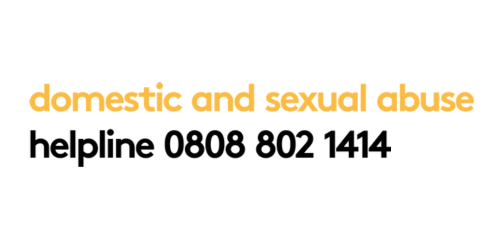FAQs
Call us now on 0808 802 1414
or email @helpdsahelpline.org
Why would I call the Helpline?
There are many reasons a person may call the Helpline. These range from getting support for a domestic or sexual abuse situation, obtaining more information on your next steps, getting a referral or support to find safe housing or discussing concerns that are coming up for you or getting information in order support a friend or family member.
Is the Helpline only for female callers?
No. The Helpline is open to anyone who has or is currently experiencing domestic or sexual abuse as well as sexual assault.
We welcome calls from all members of the community including men, women and those from the LGBTQ+ community.
There are male and female operators available. If a caller would prefer to speak with one gender over another this can be requested when they call.
What happens when I contact the Helpline?
You will be connected with a trained professional operator who will give you the support you need, in confidence.
It is your decision what details you divulge with the operator. If appropriate, an operator may recommend another service that may be appropriate to your concerns.
Is the Helpline a counselling service?
The Helpline can offer support but not counselling services. If appropriate, we may recommend a more specialised service through one our trusted partner organisations.
Will I be judged on the details of my story?
The Helpline operators will support you without judgement.
Will you create a log of my contact for legal purposes?
No. We only record enough information to provide demographic data to our funders for further outreach needs. We will only take the necessary personal data to provide a referral for you.
Will my call be confidential?
Whenever you communicate with the Helpline it is confidential. At times we may need to give information about you to someone else. We may do this if:
- you ask us to
- we believe your life, or someone else’s life is in danger
- you have disclosed a child is being hurt
- you want referred to another organisation for help
- You tell us about a serious crime
I am a non-English speaker; can I call the Helpline?
Yes. It is helpful if you provide a translator when you call. If not, we can obtain a translator for you. A quicker and more efficient option may be to use our e-mail or webchat option where we use embedded translation services to communicate.
I am not sure if I am able to leave my situation or not, am I still able to call for support?
Yes. You can call no matter the situation you find yourself in. Our operators can provide a listening ear and support you by providing resources for your individual situation.
Can I call on behalf of someone else?
Yes. We accept communication from concerned family, friends, professionals and clinical members of the community.
Can I talk to the same operator each time I call?
How much detail will I be expected to give about what I've been through?
Will you report what I tell you to the police or anyone else?
Why are you asking for my demographic information?
I am an adult survivor of sexual abuse; can I still call?
Yes. Our operators can provide support as well as resources or referrals.
I am under 18; can I still call the Helpline?
It is not safe for me to call the Helpline. How can I get support?
You can use our email or chat service. You may also ask a friend or family member to contact us for support or resources.
How do I pass on Feedback about the Helpline?
If you have a compliment or complaint you can get in touch by sending a letter to 59 Malone Road, Belfast BT9 6SA or emailing info@dsahelpline.org
